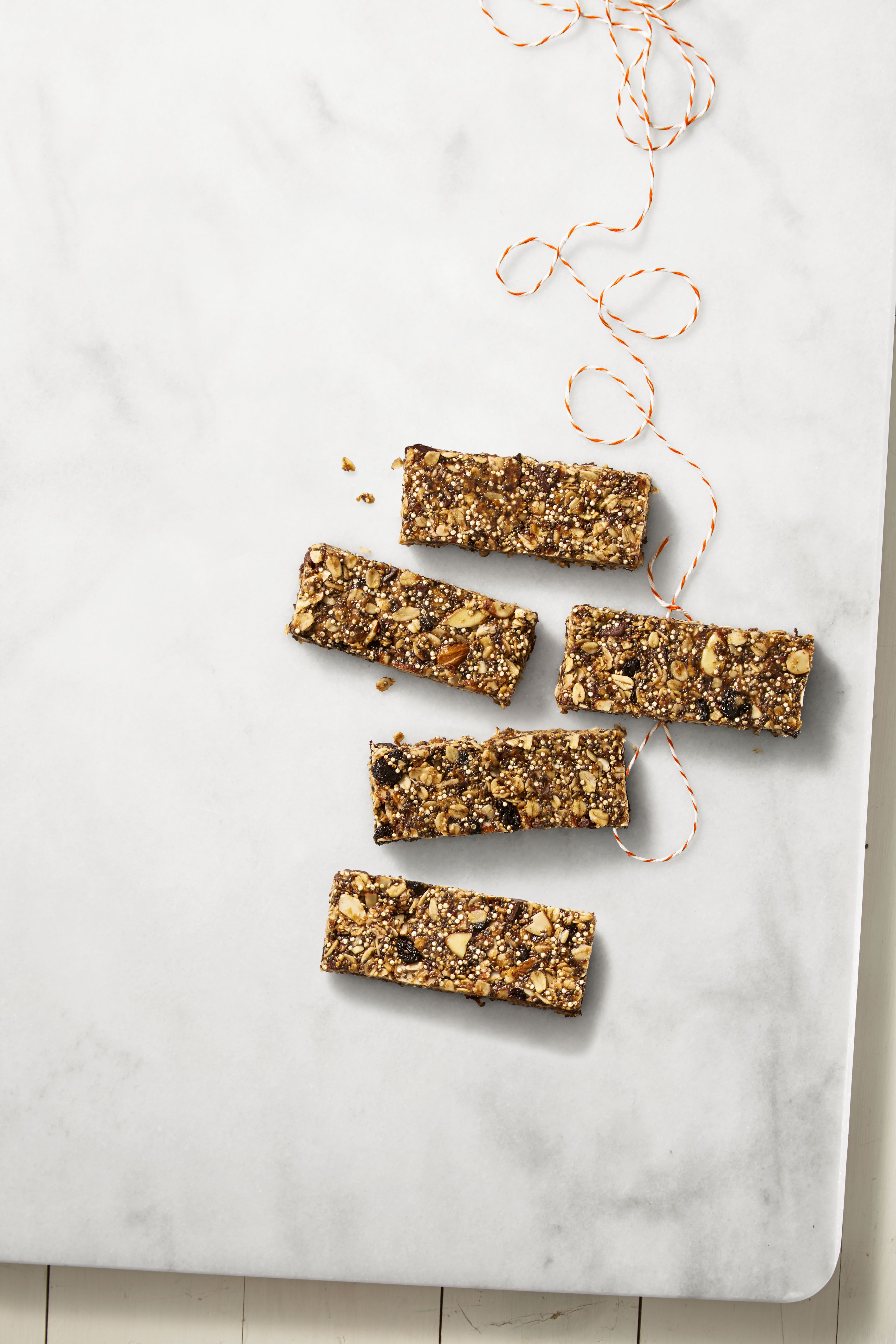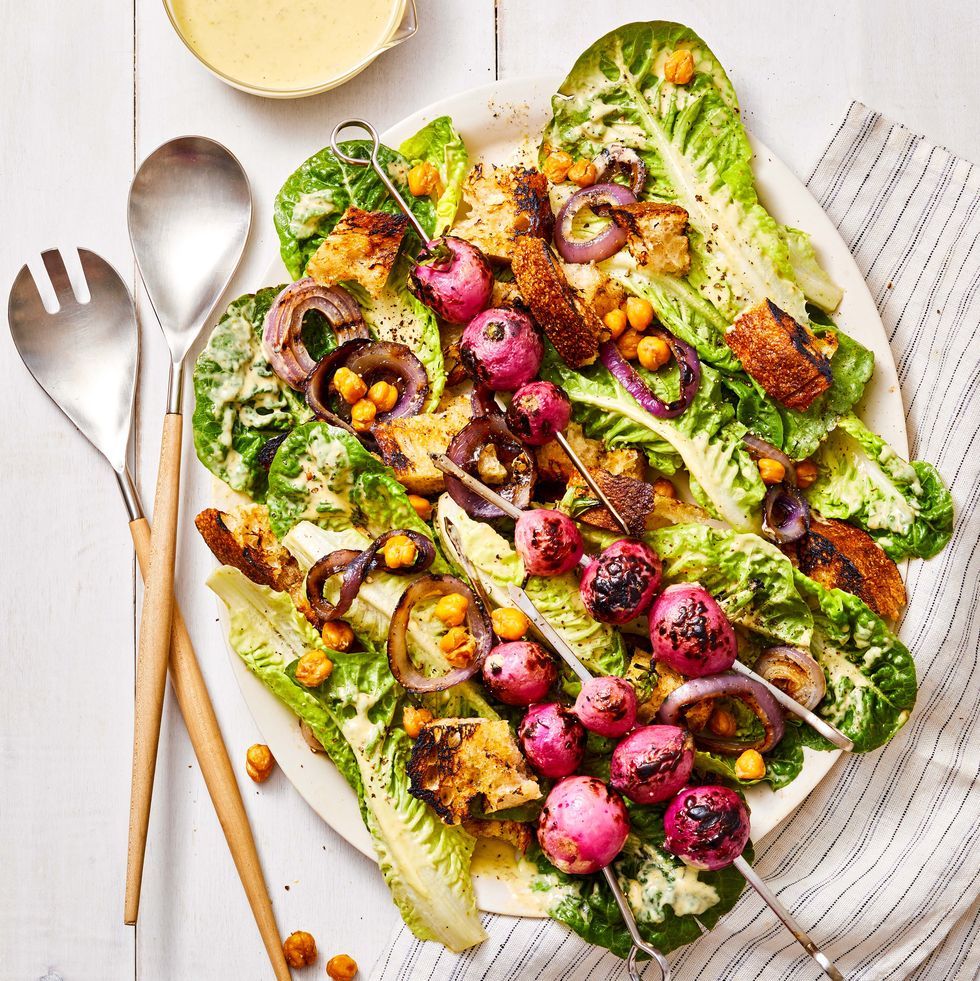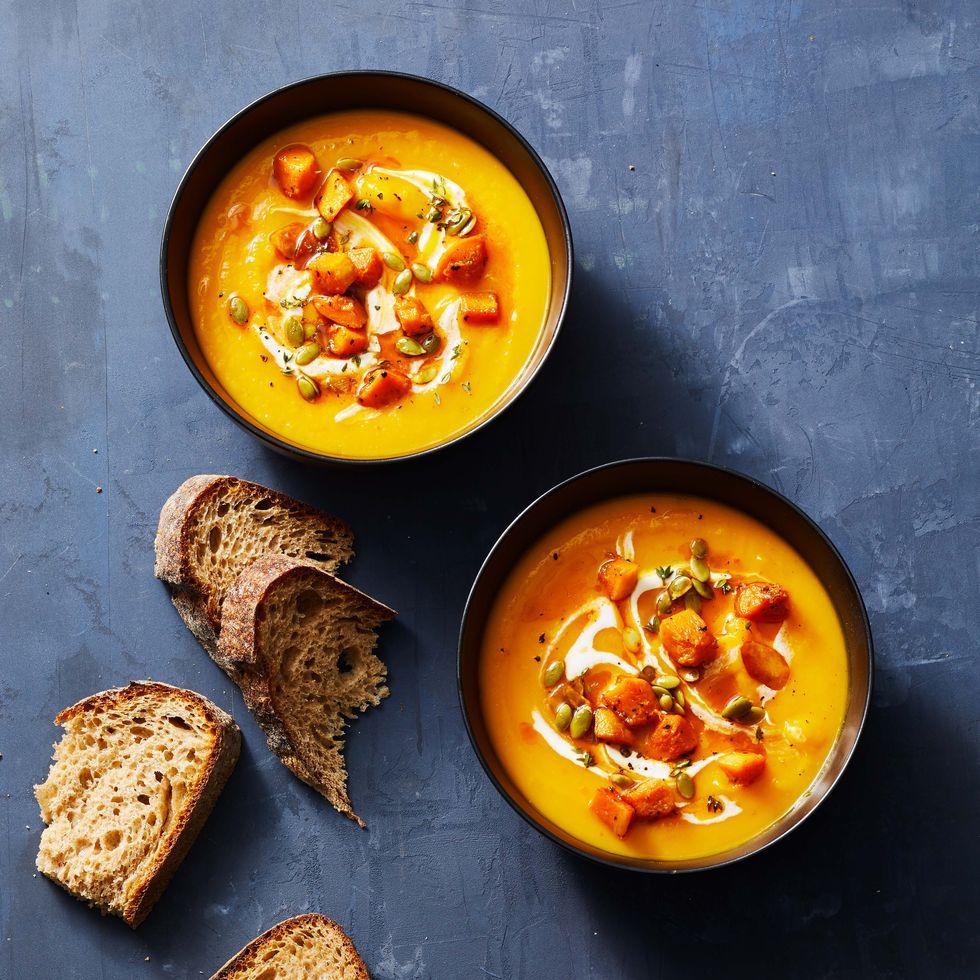Check in! We’re at the halfway point in our eight-week plan. It’s a time to regroup and evaluate what went well and what can be improved. Is there a particular healthy habit that you’re especially proud of yourself for incorporating? Continue to stick with it and follow-through.
This week is all about incorporate powerful plants into your diet, which coincides with meal prep from last week and even contributes to your hydration goals (yes, fruits and veggies are packed with water!).
Adding more fruit and vegetables to your diet may be one of the best healthy habits you can adopt. These are nature’s superfoods, packed with beneficial antioxidants and nutrients that can combat inflammation, chronic disease and more. You don’t have to go fully vegan or vegetarian to reap the benefits of a plant-forward diet.
Here are just some of the reasons why eating more plants is good for your health:
- Promotes a healthy heart: Your ticker is responsible for pushing millions of gallons of blood to every part of your body, and over the course of an average lifetime beats 2.5 billion times. Plant-forward diets that are higher in plant foods and lower in animal foods can help keep it strong, as they’ve been associated with reduced risk of heart disease and lowering cholesterol (especially the bad “LDL” kind).
- Reduces risk of certain cancers: Eating too much red meat and processed meat (think things like bacon and sausage) has been associated with increased risk of certain types of cancers. But by limiting those foods and eating more plants, you can substantially lower your risk. That’s why the American Institute for Cancer Research recommends eating a diet rich in whole grains, veggies, fruits and pulses year after year.
- Supports immunity: Produce is abundant in antioxidants and other essential nutrients that we can’t get from other foods. These vitamins, minerals, phytochemicals, and antioxidants all work to keep your cells healthy and your immune system in tip-top shape. Certain varieties abundant in vitamin C like strawberries, red bell peppers and oranges are especially helpful for immune support.
- Improves your skin: Looking for healthy, glowing skin? The antioxidant abundance of plants can help fight free radicals and reduce inflammation, which may promote better complexion and reduce fine lines and wrinkles over time.
- Assists with weight management: Fiber-rich foods tend to be nutrient-dense, keeping you full for longer and oftentimes on fewer calories than their low-fiber counterparts. By cutting out high-calorie animal-based foods like fatty meats and cheese and replacing them with more filling plant-based options, you may create a caloric deficit to promote healthy weight loss.
In addition to physical health benefits, eating more plants has a few other pros that go beyond your own personal health:
- Good for the planet: Meat has a significantly higher water footprint than grains, vegetables or beans. Research shows that a pound of beef alone can take anywhere from 2,000-8,000 gallons of water to produce, but the same amount of tofu only requires 302 gallons of water and a pound of unprocessed oats needs 290 gallons of water. By adopting a meat-free diet, research suggests that you can reduce your water footprint by up to 55%. But even just a small reduction in your meat consumption can make a significant difference over time on this planet and can provide you with consistency and peace of mind.
- Good for your wallet: Falling in love with the produce aisle can have a positive impact on your bank account too. Meat and animal-based products tend to be the most expensive items on the grocery bill; opting for plant-based proteins like legumes can help you stay on a budget. One study in the Journal of Hunger & Environmental Nutrition found that a plant-based diet can save as much as $750 a year.
How to get started?
You may feel tempted to jump right into a vegan diet, but completely eliminating meat and animal-products can be quite tough, especially if they already make up the majority of the foods you eat. Your diet can be sustainable for the planet, but it also has to be sustainable for you. Plus, eating more produce means you’ll be upping the fiber in your diet which can mean a little more bathroom visits. But not to fret; this is a normal part of transitioning to a high fiber diet and shouldn’t last too long, just make sure to stay hydrated to help fiber digest properly in your body. Some other important tips to try to include:
- Incorporate plants in phases: Instead of cutting out meat and other animal products, focus on adding in more plants this week. Can you add a serving of veggies to dinner? Is it possible to chop up a pepper to add both great flavor and nutrition to your morning omelet? Think about ways that you can sneak in more produce throughout the week, maybe starting with just one meal a day to add a veggie too.
- Try a new prep method: Salad is not the only way to incorporate more produce into your diet. If you’re sick of roasted veggies, try air-frying them for great texture and to change things up. Frozen veggies come alive in the air fryer too, which can be the ultimate last-minute dinner hack. Experiment with different seasoning blends to enhance their natural flavor too, like chile lime seasoning on zucchini or a savory curry seasoning blend on cauliflower.
- Snack on whole fruit: What’s not to love about nature’s candy? Fruit is colorful, packed with favor and extremely nutrient-dense. Most fruits are naturally low in calories, fat and sodium too. Plus, they pack in essential nutrients that aren’t available in many other foods, like vitamins C, potassium and fiber. The combination of fiber and nutrients in fruit makes it great for snacking, just go for the real thing as opposed to a juice. Pair it with nuts, cottage cheese or Greek yogurt for an even more satisfying snack.
- Become a part-time vegetarian: Many individuals choose to ditch animal products a few days a week, which may be ideal for you. You can also opt to make at least one meal a day completely plant-based by picking whichever meal is easiest to make the change for your lifestyle. Remember that nobody is perfect, so give yourself permission to slip up! Just do the best you can as you acclimate to the diet.
Tips for success:
Make it obvious.
- Place baby carrots and cut up celery sticks in baggies at the front of the fridge.
- Fill a large bowl with assorted fruit and keep it on the kitchen table for an easy healthy snack.
Make it attractive.
- Buy new spices (dried and fresh) and oils to roast vegetables with.
- Use colorful plates to serve veggies on.
- Try new fruit such as colorful dragon fruit that you can serve with yogurt or add to smoothies to make it pink.
- Add pomegranate seeds to your salad or in sparkling water.
Make it easy.
- Buy frozen veggies such as cut up cauliflower, spinach and/or kale to add to smoothies and omelets or for stir-fry.
- Add spinach into your smoothies and throw kale, spinach, mushrooms and peppers into your omelets or soup.
Make it satisfying.
- Record how much money you save when replacing meat with plants.
- Experiment with plant-based substitutes like jack fruit that deliver hearty and satisfying texture.
How to habit stack plant-based eating:
- Start by making every Monday dinner Meatless Monday and build up to a full day of Meatless Monday (all three meals will be plant-based).
- Order a small salad as an appetizer before your entrée at your work lunch.
Recipes:
← Back to Challenge / Go to Day 5 →
Nutrition Lab Deputy Director
Stefani (she/her) is a registered dietitian, a NASM-certified personal trainer and the deputy director of the Good Housekeeping Institute Nutrition Lab, where she handles all nutrition-related content, testing and evaluation. She holds a bachelor’s degree in nutritional sciences from Pennsylvania State University and a master’s degree in clinical nutrition from NYU. She is also Good Housekeeping’s on-staff fitness and exercise expert. Stefani is dedicated to providing readers with evidence-based content to encourage informed food choices and healthy living. She is an avid CrossFitter and a passionate home cook who loves spending time with her big fit Greek family.





